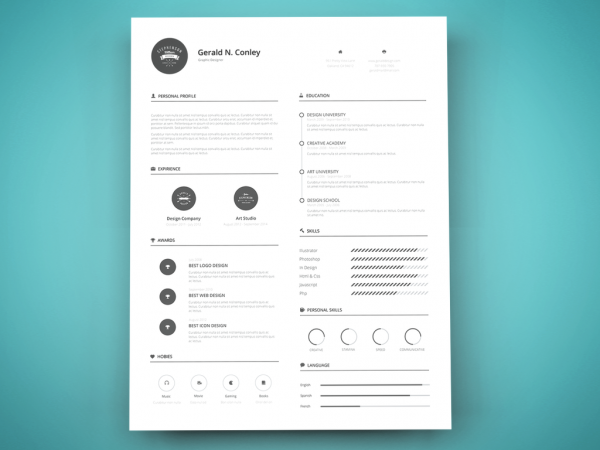In the era of 21st century, youth is being educated and skilled beyond the basic necessities of a job. This leads to over qualification of candidates.
Companies are of the view that professionals who are multi degree holders, when apply for the job, their main motive is to obtain work experience for some other positions they aspire for and take the current position on a temporary basis until some better opportunities knock their door.

Sometimes employers reply “sorry, you are too qualified for the job?” This is an excuse for the employers who do not want to reveal true reasons for the candidate rejection.
When an employer is uncertain about the candidate regarding any of the points, they see their qualification and judge whether the plans for association are temporary or permanent. On this basis they undergo the recruitment tests and screen the candidates.
Countless resumes are interchanged on a regular basis but still the employment ration remains the same.
And if asked the reasons from Hiring managers about the rejections, the reasons are that the applicant is too qualified for the job.
Employers do not want to hire these candidates due to the following reasons of fear:
Why Employers Don’t Want to Hire Overqualified Candidates?
1. Employers fear that they may get bored and quit:
After screening the resume of the candidates, the employers analyze whether the candidate will be suitable for the working conditions in his organization.
If a candidate is highly qualified with multiple degrees and the employer where he is applying is running only one business in a midsized sector, the candidate will not get proper exposure and will not be able to adjust in such a compact environment.
After conducting interviews, the employer comes to know about the candidates’ aspirations and sees whether his aspirations are in commensurate with the organization.
2. Candidates are just parking time until the best according to them comes:
Candidates, who have cleared their examinations with high graded results, start their job search with a midsized firm to gain 1-2 years experience as the top 500 fortune companies prefer a working candidate with at least minimum experience of a working atmosphere.
Candidates know the facts and so does the employer offering a vacant position.
It is upon the employer to decide whether he is willing to take the risk of employing a candidate whom he knows will not be an element of long term connection and reliability.
3. Overqualified may have applied to the job out of desperation:
 A job seeker should not show desperation in his interview sessions. It is not at all an attractive quality. It is seen that people who are professionally qualified apply for jobs related to clerks, receptionists, book keeper or even a mere typist.
A job seeker should not show desperation in his interview sessions. It is not at all an attractive quality. It is seen that people who are professionally qualified apply for jobs related to clerks, receptionists, book keeper or even a mere typist.
The reason being, they might have faced sudden downsizing due to closure of the company or may be tired of finding jobs in the crowd.
In that case, employers fear to accept them for job because once they get the next best option, they will switch over immediately.
Employers have a feeling of unreliability at giving job to them. They don’t give employer the surety by their acts that they will be able to turn up to be an asset for his company.
4. Candidates who are qualified do not want to take required stress in their jobs:
In the world of working women, highly qualified women have to sometimes settle for under positioned jobs due to some household reasons. They want to manage their personal as well as professional lives in smooth harmony.
In that case, they plan to opt for a less positioned job which does not demand for extra stress as per the qualification.
Similarly, with men, there may be the same reason for opting less stressful jobs so that they can live up with their families and enjoy their lifestyle.
Employers understand the thought process of the candidate in this regard and can make decisions depending upon the loyalty of the candidates’ responses.
5. Youngsters are more concerned about fulfilling their hobbies:
Young generation of today is more concerned about fulfilling their passion. Out of family pressure, even if they have cleared the world’ top rated examination degrees with excellent marks, they still feel uncomfortable with their profession.
They want to live lives where they can devote their time to their hobbies and passions like singing, or dancing, or driving or any sort of extra activities. This may not be possible if they join top 500 companies.
They choose mid sized companies which will pay them enough to earn bread for the family and give them time to live and devote themselves to their dreams and aspirations.
6. Relocation:
 Many people want to shift to different countries or different locations. It becomes a necessity for them to go for less qualified jobs so that they get time to settle well because at this point of time they need money, resources and time. They even choose jobs where they are immensely overqualified.
Many people want to shift to different countries or different locations. It becomes a necessity for them to go for less qualified jobs so that they get time to settle well because at this point of time they need money, resources and time. They even choose jobs where they are immensely overqualified.
7. Some previous job nightmares:
“Why do you want to leave your current job?” has been the regular question of the interviewer to enquire what had actually happened in the earlier jobs of the candidates.
If it is seen that the candidate was working in a well reputed company and now he is ready to switch over to any midsized firm, the employer should enquire the reason behind it.
This will help the employer understand about his track records and the nature of his profile.
It may so happen that out of over qualification, he might have tried some illegal means. So, it is better to go through his civil records as well.
8. Problem of direction:
When an employer gets his subordinate more qualified than him, then there is a communication gap.
The qualified person thinks that he knows much more than the employer and that is why he will try to cross examine the discussions and decisions of the employer every time he is directed to do a certain work.
At one point of time, he will become impossible to direct and that might make the work suffer.
9. To protect less qualified people:
Nowadays, government interviews come with a condition of upper qualification limits. This is a protection to the under qualified people who have difficulty in getting job elsewhere.
Equal or over qualified people get jobs easily but for the less qualified, there is a difficulty in getting jobs.
So, to make sure that each person holds an “employed” title, Government companies do not prefer highly qualified candidates.
10. More cost to the company:
 When a company employs a qualified person, he has already decided the position and the salary for the position.
When a company employs a qualified person, he has already decided the position and the salary for the position.
Now, when a person of higher qualification is willing to accept the job, he will demand salary of the higher range which will in turn increase the cost to the company as well.
Over qualified people will demand promotion or pay hike within a short span of time because of the grip they have maintained over the work.
No doubt about their work results being impressive, but company’s cost tends to increase when professionally qualified people occupy the high positioned jobs.
11. Over qualified people do not get job satisfaction easily:
An over qualified candidate do not get job satisfaction easily. His aims and aspirations are too high. He expects rewards for every work. And when company is not able to give him his expected results, he becomes dissatisfied with the job.
He feels like he is being over utilized for a less pay. He starts to contribute less to the job and tends to lose focus and concentration due to dissatisfaction.
12. Uncertainity regarding long term commitments:
In the motive of name, fame and money, long term commitments are vanishing. People are switching over jobs on the grounds of better position and pay. They do not make goals of long term associations.
Long term commitments enhance the reliability of the management with its employees. Managements tend to depend upon such employees and when they quit, the management needs time to fill the gap.
Management cannot bear manpower losses which have been set up by its own training and perseverance.
13. Over qualified candidates have vast network:
When candidates have acquired multiple degrees, they have also created vast networks in their training periods.
These may include colleagues, family friends or even former employees and other contacts for referrals. You cannot refuse such referrals. They will create vacancy when job seekers are available.
14. The experience and achievements exceed the requirements:
Over qualified people when apply for lower positions do not take the pain to modify their CV in the sense of the employer’s requirement.
If ever, the candidates want to agree for lower positions out of DESPERATION or any other reason should modify their CV according to the requirements of the job. Over qualified people are not ready to forego their degrees in search of lower jobs.
15. Complex CV:
 Employer filters the resume according to his requirements. A highly complex CV containing multiple degrees and work experiences tend to confuse the employer. It crowds the visual layout of the CV.
Employer filters the resume according to his requirements. A highly complex CV containing multiple degrees and work experiences tend to confuse the employer. It crowds the visual layout of the CV.
The employer actually cannot make out whether the acquired education base is actually fruitful for his organization or not.
The key information is hard to find among the long list of professional qualifications and experiences. Within a short span of time, an employer cannot decide whether to pick or loose.
16. Over qualified CVs are long:
Employers do not have spare time to entertain long lists in the CVs. Thus, listing every minute details of your career history in your CV is not fruitful.
Because of lack of time, short and to the point CVs are preferred which are exactly matching to the job profile as stated by the employer. Most importantly, employers hate extra facts and figures in the Resumes.
17. Ridiculous email address:
Email address shall be professional sounding. It is not advisable to include all your degrees in the email address. Just your name with a domain name is enough.
You don’t need to show your email users about your heights of academics. Keep it simple to the point address for easy relevance.
18. Spelling and Grammar:
 It is not expected from an educated individual to perform spelling and grammatical mistakes in yourself introductory form i.e. Resume.
It is not expected from an educated individual to perform spelling and grammatical mistakes in yourself introductory form i.e. Resume.
Just one grammatical mistake and your employer will raise doubts in all the experiences gathered by you so far.
Even the spelling of Curriculum Vitae is not written in a right manner in the CV. It is better to thoroughly check each and every part of your CV once again before submitting it to the required authority.
19. Picture of the candidate:
International CV formats prescribe list of required items to be mentioned in the CV. Highly qualified candidates plan to make their CV according to International formats for Indian companies as well.
They tend to attach passport size photos to their CVs which are not taken positively by some employers.
It may be a cause of amusement to the recruiters and gets your CV closer to the rejection pile.
20. Experience not in the chronological order:
Make sure to match the start and finish dates when you have list your jobs. CVs are not a place to act smart.
Any missing information and the CV shall be rejected as the employer may come in the view that you are trying to act extra smart. You should provide each and every information in its right form.
21. Huge employment gap:
Inspite of high qualifications, people do not get jobs easily and the time gap creates a difference in the pattern of experience.
Here the employer thinks that the candidate might have lost the habit of working in a pressurized environment.
Conclusion:
Overall, it is seen that the major issues related to over qualified CVs for middle level management are that they demand extra cost and extra attention of the company and its management. Highly qualified personnels are always beneficial to the company but their interference and extra ordinary skills might prove a threat to the top level management.











































